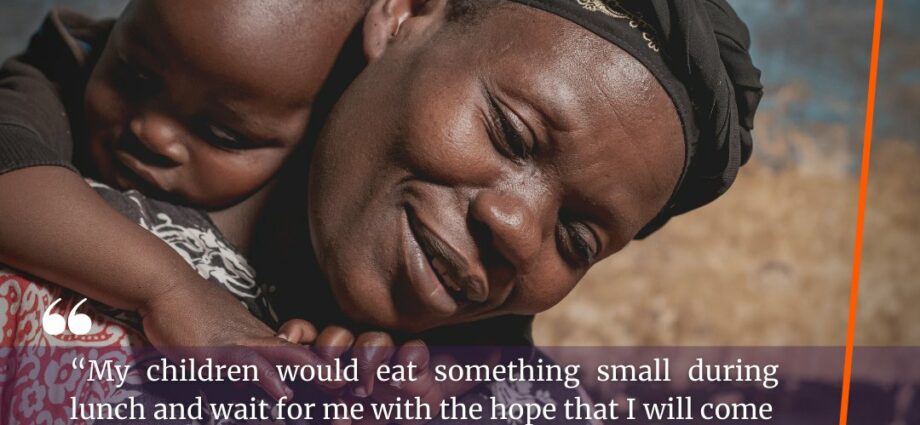“Cover her well, put a hat and gloves on her!” My mother ordered me when I left the maternity hospital in Nairobi. It’s probably hard to believe, but Kenyans are afraid of… the cold. We live in a tropical country, of course, but temperatures below 15 ° C are freezing for us. This happens in June, July and August, the months when little Kenyans are dressed in layers of clothing, including hats, from birth. When my uncles and aunts hear one of my children cry, they worry: “He must be cold! “.
To understand this, you have to know that our homes are not heated, so in “winter” it can be really cool inside. Our country is located not far from the equator.
The sun rises all year round around 6 am and sets around 18:30 pm Children often wake up at 5 or 6 am, when life begins for everyone.
Zena means “beautiful” in Swahili, and Vusei means “renewal”. In Kenya, many of
we have three names: baptismal name (in English), tribal name and family name. While many tribes will name the children according to the season (rain, sun, etc.), the Kikuyu, which is the tribe to which I belong, name their children after close family members. In Kenya, it is also common to give them names of celebrities. In 2015, the former American president visited Kenya (himself being of Kenyan origin), and since then, we have Obamas, Michelle and even … AirForceOne (the name of the plane in which the American presidents travel )! Finally, the name of the father is often overlooked and is only used for official documents.
We also have a very funny custom to call mothers. “Mama Zena” is the nickname given to me by my daughter’s Kenyan friends. For us, it is a sign of respect. I find it easier for moms who often know the first names of their children’s friends, but not that of their parents.
With us, the birth of a baby is a joy for the whole family. I stayed near
of mine for four months. My mother was very generous and helped me full time. She spent all her time in the kitchen preparing delicious dishes to welcome guests. Family, near and far, friends and colleagues came from all over the country, arms loaded with gifts for my daughter. Mom used to cook our traditional meals for me, which contain all the nutrients a young mother needs. For example, “uji”, a millet porridge with milk and sugar, which is eaten all day, or “njahi”, an oxtail and black bean stew. Against constipation, which is common after a cesarean section, I drank smoothies of mixed fruits and vegetables three times a day: kiwi, carrot, green apple, celery, etc.
Remedies and traditions
“Kenyan mothers are very resourceful. For example, they all carry their children on their backs in kanga, the traditional fabric, decorated with proverbs in Swahili. Thanks to this, they can be “multitasking”: putting their baby to sleep and preparing food at the same time. “
“In Kenya, we do not knowt not colic. When the baby is crying, there can be three reasons: he is cold, hungry or sleepy. We cover him, breastfeed or take him in the arms to rock him for hours. “
Our obsession is food. According to my family, children should be fed
all day. Moms are all breastfeeding and under great pressure. We breastfeed everywhere, moreover, when our baby cries, even a stranger can approach us to say: “Mama, give the nyonyo to this poor little one, he is hungry!” We also have a tradition
to pre-chew the food. Suddenly, from 6 months, they are given almost all the food on the table. We don’t use a knife or a fork either, we use our hands and children too.
What I envy mothers in Kenya are the natural parks. Children love safaris and those in the countryside know animals very well: giraffes, rhinos, zebras, gazelles, lions, leopards… Toddler, they are already taught how to behave with them and they are explained the dangers. For them, “exotic” animals are wolves, foxes or squirrels! ”










